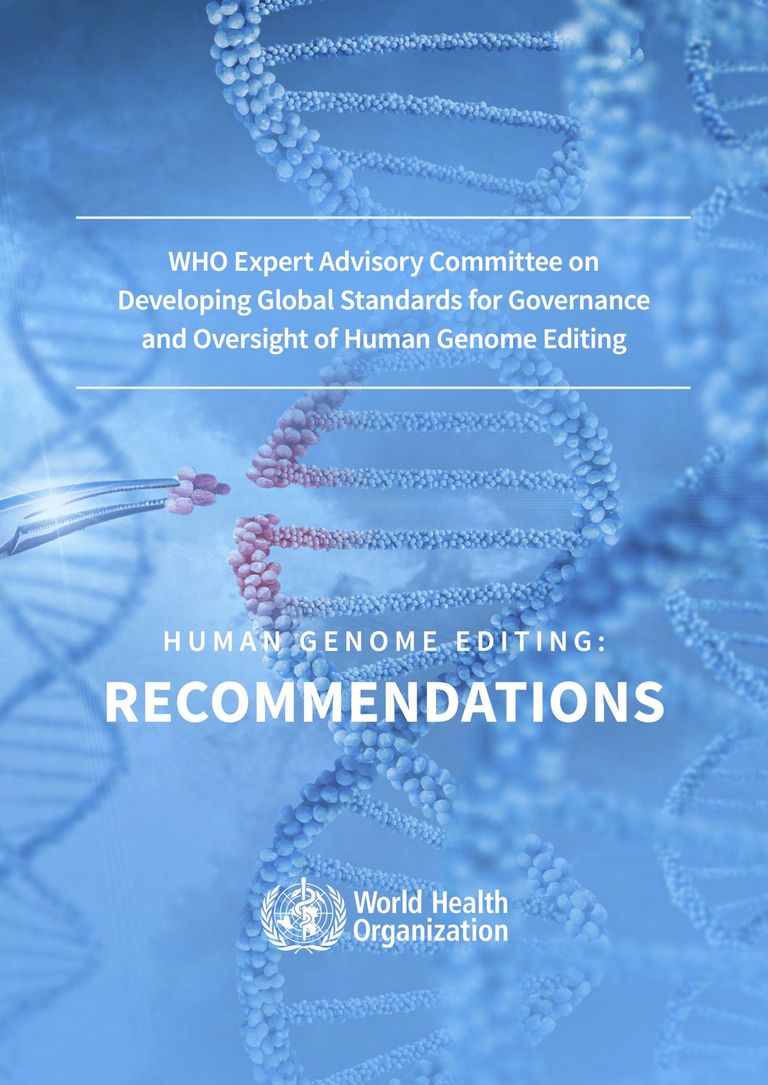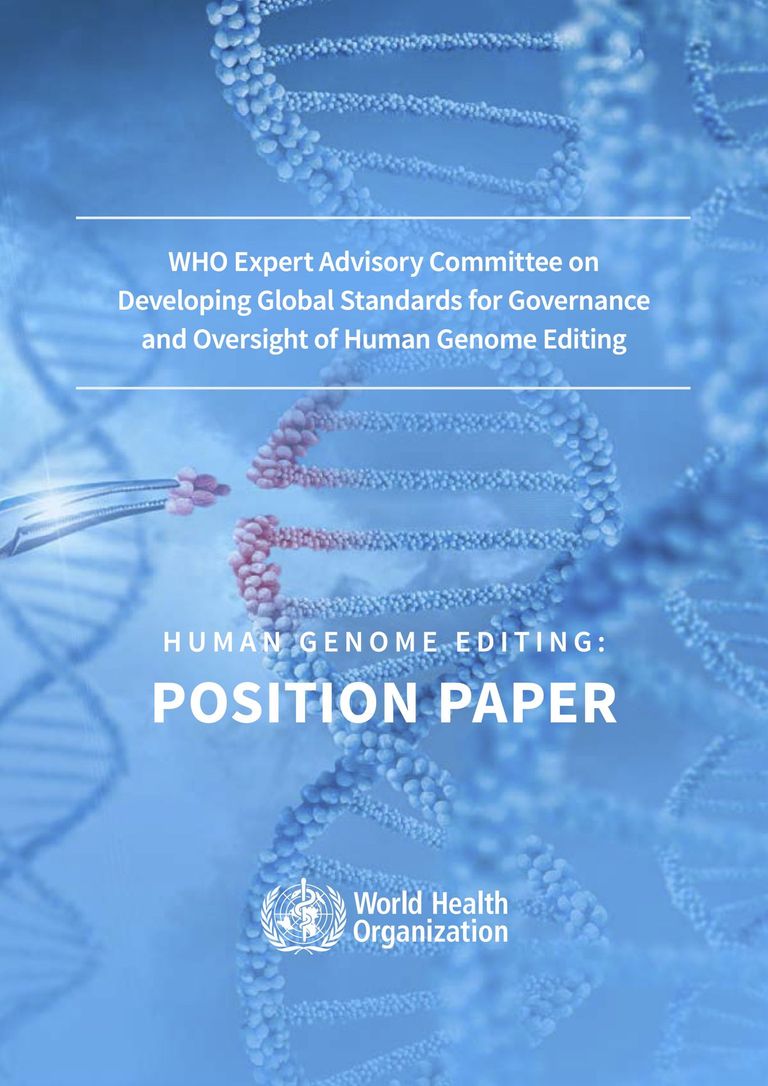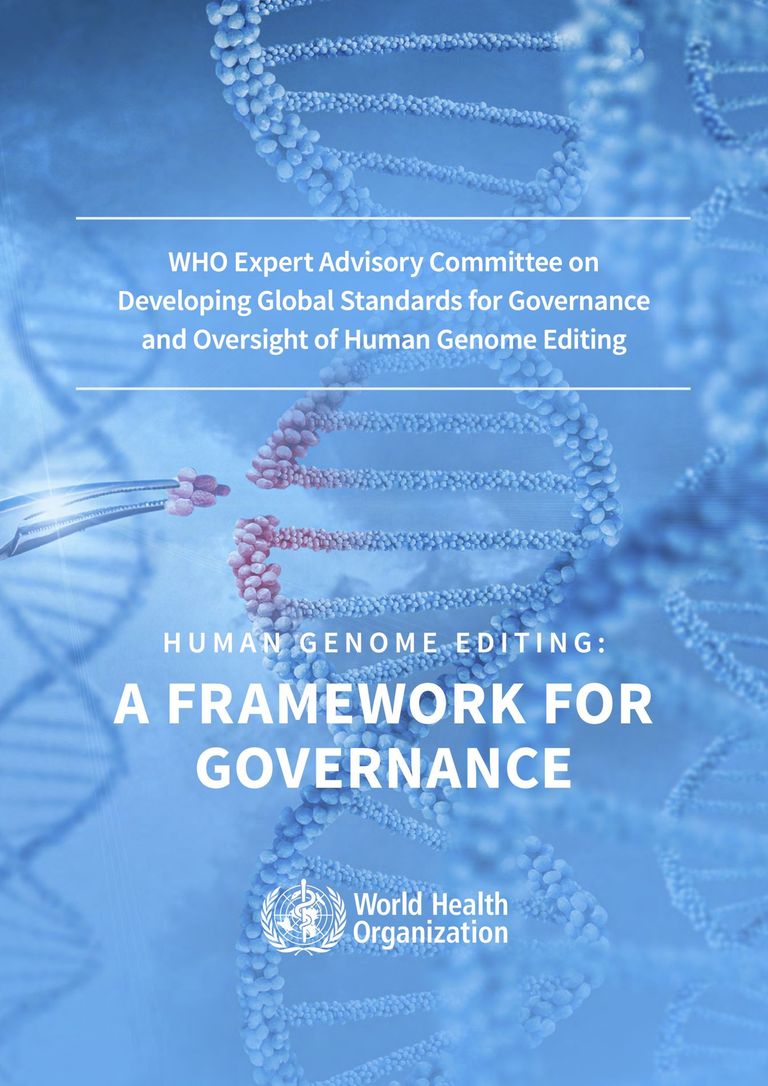Human genome editing: recommendations
The recent application of tools, such as CRISPR-Cas9 (clustered regularly interspaced short palindromic repeats; Cas9 nuclease), to edit the human genome with the intention of treating or preventing disease and the gaps in our scientific understanding, in addition to some of the proposed applications of human genome editing, raise ethical issues that have highlighted the need for robust oversight in this area In December 2018, WHO established a global, multidisciplinary expert advisory committee (the Expert Advisory Committee on Developing Global Standards for Governance and Oversight of Human Genome Editing, hereafter called the Committee) to examine the scientific, ethical, social and legal challenges associated with human genome editing (somatic, germline and heritable).

The governance framework on human genome editing, along with the recommendations of the Committee, form a set of two publications that provide advice and recommendations on appropriate institutional, national, regional and global governance mechanisms for human genome editing. A position paper on human genome editing provides a summary of these two publications.
The Committee produced a series of recommendations in nine discrete areas: 1. Leadership by the WHO and its Director-General; 2. International collaboration for effective governance and oversight; 3. Human genome editing registries; 4. International research and medical travel; 5. Illegal, unregistered, unethical or unsafe research and other activities; 6. Intellectual property; 7. Education, engagement and empowerment; 8. Ethical values and principles for use by WHO and 9. Review of the recommendations.



